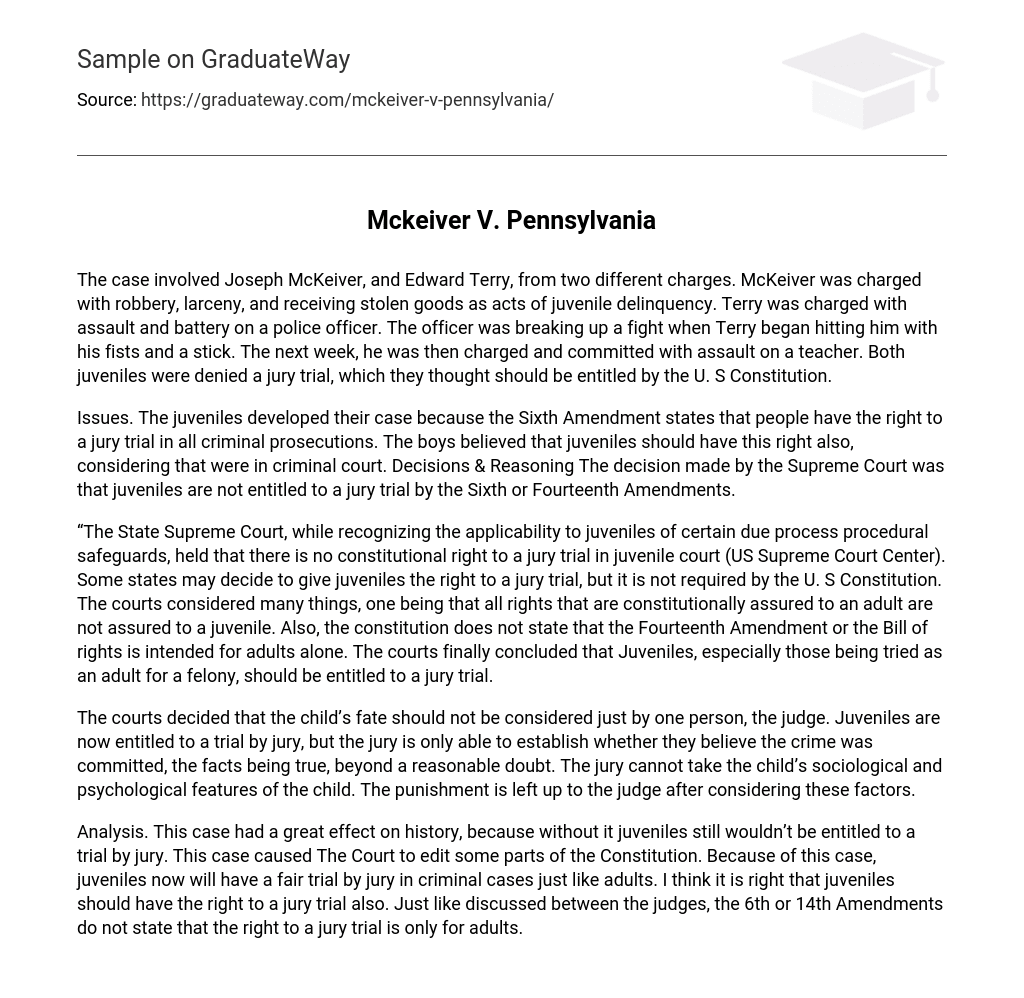The case involved Joseph McKeiver and Edward Terry, two individuals facing different charges. McKeiver was accused of committing acts of juvenile delinquency, specifically robbery, larceny, and receiving stolen goods. Conversely, Terry faced charges for assaulting a police officer by attacking him with his fists and a stick during an intervention in a fight. Additionally, Terry was charged with assaulting a teacher later that week and was subsequently detained. Both young offenders believed that their constitutional rights entitled them to the right of having a jury trial.
The juveniles contended that they should be entitled to a jury trial in criminal prosecutions, as outlined in the Sixth Amendment. They maintained that this entitlement should also be applicable to juveniles engaged in criminal court proceedings. However, the Supreme Court determined that neither the Sixth nor Fourteenth Amendments provide assurance of a jury trial for juveniles.
According to the US Supreme Court Center, the State Supreme Court has recognized that juveniles have specific due process procedural safeguards. However, it concluded that a jury trial is not constitutionally necessary in juvenile court. While some states may choose to provide juveniles with the option of a jury trial, it is not required by the U.S Constitution. The courts took into account different factors, including the distinction between constitutional rights for adults and those for juveniles. Additionally, the constitution does not explicitly limit the Fourteenth Amendment or Bill of Rights only to adults. Ultimately, it was determined by the courts that juveniles, particularly those being tried as adults for a felony, should be able to access a jury trial.
Previously, the judge had exclusive authority in determining a child’s future; however, court rulings have granted juveniles the right to a jury trial. Nonetheless, the jury’s role is limited to evaluating whether there is sufficient evidence to establish guilt and they are prohibited from considering sociological and psychological factors related to the child. Ultimately, it is the judge who bears responsibility for deciding on punishment while taking these aspects into account.
Analysis. This case had a profound effect on history because, without it, juvenile offenders would still lack the right to a trial by jury. The ruling prompted The Court to amend specific sections of the Constitution, granting juveniles an equal chance as adults to receive a fair jury trial in criminal cases. Personally, I believe it is just that juveniles are also entitled to a jury trial. As stated by the judges, neither the 6th nor 14th Amendments state that this right is reserved exclusively for adults.





